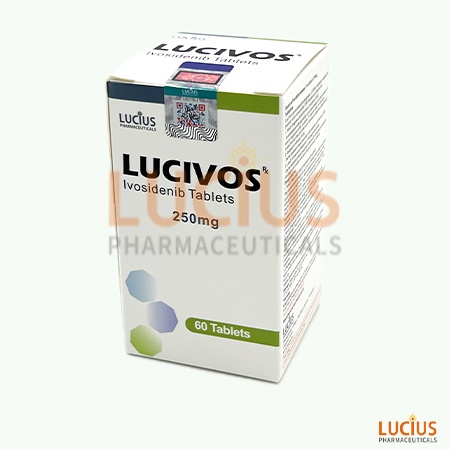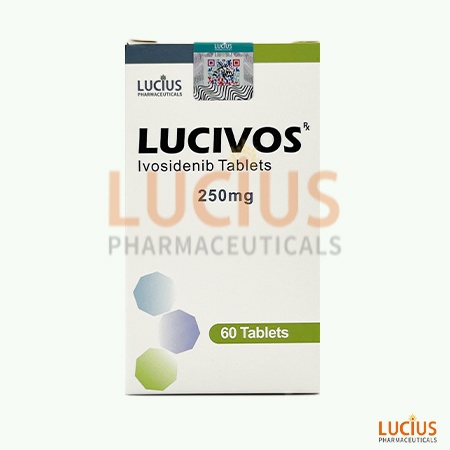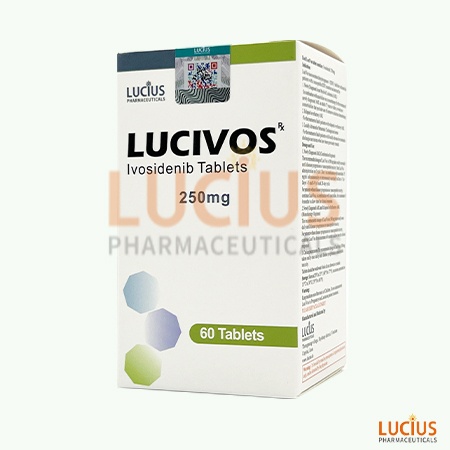





Another Nameivosidenib,Tibsovo,LuciVos,艾伏尼布,依维替尼
IndicationsIt is indicated for patients with susceptible isocitrate dehydrogenase-1 (IDH1) mutations confirmed by a test method approved by the FDA.
Reg No.07 L 0988/23
Inspection NO.1730-23


Ivosidenib is a prescription small-molecule inhibitor targeting mutant isocitrate dehydrogenase 1 (IDH1). It was approved for marketing by the U.S. Food and Drug Administration (FDA) in July 2018 and should be administered strictly in accordance with the doctor’s instructions.
Mutant Isocitrate Dehydrogenase 1 (IDH1)
250 mg × 60 tablets per box
Ivosidenib is a targeted therapy that acts on cells harboring a specific mutation known as IDH1. In acute myeloid leukemia (AML) with an IDH1 mutation, bone marrow blasts are unable to mature into fully developed, healthy white blood cells. Ivosidenib targets the IDH1 mutation responsible for keeping these blasts in an immature state. By inhibiting the mutant IDH1 enzyme, ivosidenib helps restore normal blood cell production.
Ivosidenib is administered orally: 2 tablets once daily.
The treatment duration should be adjusted based on individual patient circumstances. Patients must consult their physician and strictly follow medical advice.
Recommended reading: Dosage and Administration of Ivosidenib
Key Risks and Warnings: Differentiation Syndrome
Serious Adverse Reactions: Differentiation syndrome, QTc interval prolongation, Guillain-Barré syndrome
Reference article: Side Effects of Ivosidenib
Lactation: Breastfeeding is not recommended for women taking this medication.
1. Ivosidenib should be taken at approximately the same time each day.
2. If vomiting occurs after a dose, do not take an additional dose; wait until the next scheduled dose.
3. Ivosidenib tablets must not be split, crushed, or chewed.
4. Ivosidenib may be taken with or without food, but should not be taken with a high-fat meal.
from FDA,2023.10